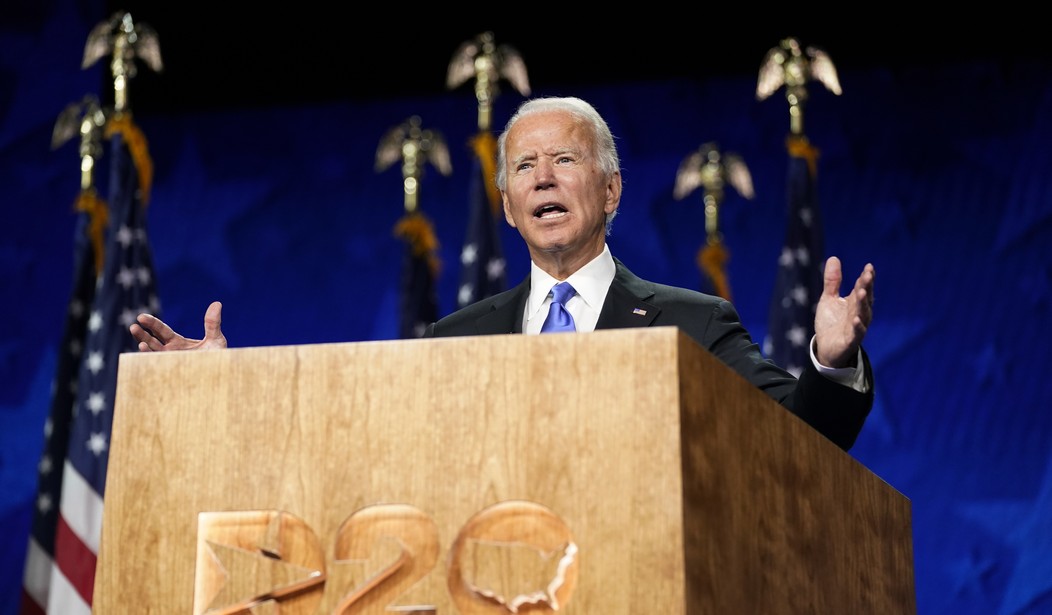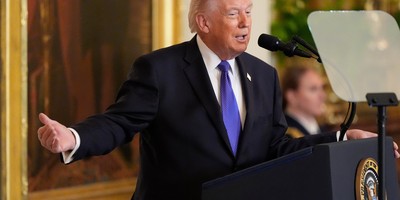The political party conventions keep slowly receding from their place in the national spotlight, especially with these genuine-imitation virtual conventions. The audiences (and air times) seem to shrink every four years, and most people who tune in are the most committed partisans, not the most independent and persuadable voters. But one longstanding trend in media bias persistently remains: the description of tone.
Democratic nominee Joe Biden's team came out of the Democratic convention insisting the tone was very dark and divisive. Biden blatantly associated President Donald Trump with the darkness and allied himself with "the light," almost implying that Trump is Satan climbing the stairway to Heaven.
But NBC's Savannah Guthrie swooned that the "deeply optimistic," "hopeful" and "intimate" Biden address "took on the tone at the end of the fervency of almost a preacher at the pulpit." MSNBC's Joy Reid also heard a preacher's Sunday sermon. CBS contributor Maria Elena Salinas said it was "better than what many of us expected" because he could "show that empathy, show that hope, give people that hope."
When Biden said character and compassion and decency are on the ballot, he strongly suggested Trump lacks all of those. But the journalists gushed this was the best Biden speech ever. No one would discuss the seamier side of the Bidens, because that would ruin the echo.
Then the media launched into the Republican convention warning that it would be four days of pounding the drums of doom and gloom. ABC's Mary Bruce insisted President Trump's Monday speech during which he accepted the Republican nomination was "full of grievances" and painted "a fairly apocalyptic picture of what will happen if he is not reelected." In the evening, NBC's Chuck Todd warned, "(T)his is ... not quite my definition of upbeat and optimistic."
Recommended
When you're a Democrat, hearing that the Democrats will ruin the economy, surrender the globe to China and let urban violence boil over can't possibly sound upbeat. Republicans have heard that democracy will pretty much be canceled if Trump's reelected. You've heard the networks spend the last five years being very dark and divisive about how Donald Trump is Hitler, or a Russian agent, or a dangerously stupid child. But that was apparently just telling "the truth."
But this biased measurement of tone has been a consistent pattern for decades. Back in 1992, Newsweek's Joe Klein trashed then-President George H.W. Bush's convention. "The Republican Party reached an unimaginably slouchy, and brazen, and constant, level of mendacity last week," he wrote. "(Bush) is in campaign mode now, which means mendacity doesn't matter, aggression is all, and wall-to-wall ugly is the order of battle for the duration."
With every Republican convention we've recorded and watched at the Media Research Center over the years, no matter how conservative the candidate has been, the anchors and pundits have scorned the GOP as ultraconservative, too hostile to women and minorities, too mired in scandal and far too negative in attacking the Democrats.
Every Democratic gathering, by contrast, has painted the Democrats as soothingly centrist, free of ethical problems and stuffed with "inspirational" speeches attacking the Republicans as -- you guessed it -- ultraconservative, racist and sexist. According to them, the GOP was always shrinking to a "smaller, older, whiter and more male party."
This is why more and more people like watching the conventions (and other campaign events) on C-SPAN or livestreams, where they can tune out all of those Democrats who contribute to the cause at the office, implausibly posing as nonpartisan journalists.
Tim Graham is director of media analysis at the Media Research Center and executive editor of the blog NewsBusters.org.

























Join the conversation as a VIP Member